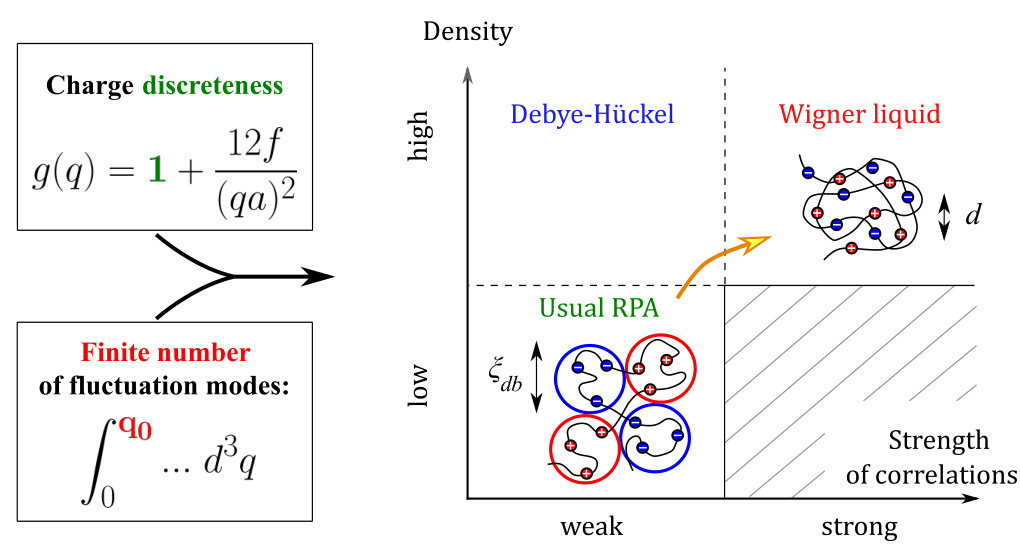2022 Annual Meeting
(403a) Unifying Weak and Strong Charge Correlations within the Random Phase Approximation for Sequence-Defined Polyampholytes
Authors
We propose an approach based on the improvement of the random phase approximation (RPA) by extending it to strong charge correlations. The generalization of the RPA is achieved by improving the scheme of the particle-to-field transformation, namely, by taking into account (i) the discreteness of point charges in polymer chains and (ii) a finite number of wave modes of the charge density fluctuations. For weak charge correlations, the developed framework reproduces the results of the standard RPA and therefore properly describes the effect of the monomer sequences on conformations of globally neutral polyampholytes. For strong Coulomb interactions, the improved RPA reproduces the free energy of a strongly correlated (Wigner) liquid of disconnected charges. In both cases, the obtained results are consistent with scaling (blob) picture of charge correlations in polyampholytes. Furthermore, field-theoretic calculations of the higher order, non-Gaussian corrections to the free energy demonstrate that the improved RPA is rigorous and assymptotically exact in the limits of both weak and strong correlations.
The developed approach is used to theoretically describe coil-globule transitions in polyampholytes of different sequences: (i) alternating, (ii) ideally random, and (iii) diblock polyampholytes. By comparing theoretical predictions with the results of coarse-grained computer simulations, we demonstrate that the generalized RPA is reliable at any strenght of Coulomb interactions. Moreover, our method is quantitatively accurate when charge correlations are strong.
Our work provides unique analytical framework for describing dense polyampholyte and polyelectrolyte systems at arbitrary strength of charge correlations. In addition, key ideas of the RPA generalization may be helpful for improving other field-theoretic methods, which are widely used in modern physics of ionic polymers.
